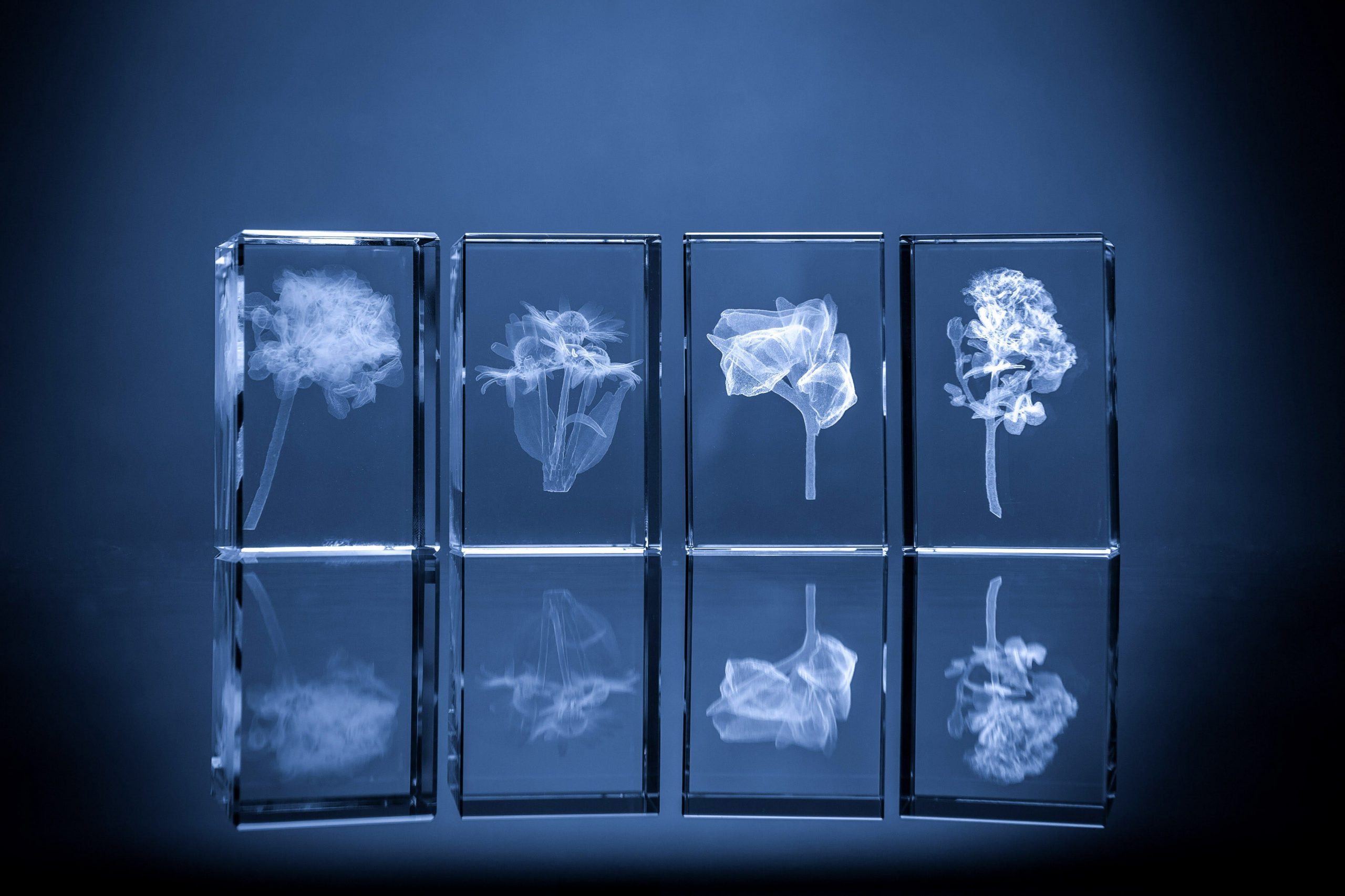Budding Nonprofit Benefits Notre Dame Cancer Research
 Flourish3D has sold more than 200 crystals
Flourish3D has sold more than 200 crystals
Subscriber Benefit
As a subscriber you can listen to articles at work, in the car, or while you work out. Subscribe NowA bioengineering lab at the University of Notre Dame specializes in bringing biomedical data to life through 3D printing, but recently discovered an inspirational side project that benefits cancer patients. The lab has sprouted Flourish3D, a nonprofit startup that creates 3D crystal flowers for chemotherapy patients who can’t receive real flowers due to their compromised immune systems. The idea blossomed inside Dr. Matthew Leevy’s lab when students realized their academic project could also serve a higher purpose.
Leevy’s lab typically translates biomedical data into 3D printed models for educational purposes; it recently discovered information from CT scans could also be used to laser engrave three-dimensional visualizations in crystal; the anatomical models appear to be suspended in the crystal.
“It’s a really excellent and inexpensive way to generate models that people can use for education. We can take complex anatomical data sets, have them displayed in crystal, and people can interact with it—you look at it from different sides,” says Leevy, who is director of biological imaging and a research associate professor. “We can even do disease states, so we can show you what a broken wrist looks like. There’s a lot of power in being able to put this in glass and see it in 3D in the palm of your hand.”
The idea for Flourish3D took root last summer, when two high school students working in Leevy’s lab began CT scanning flowers they picked near Touchdown Jesus to learn imaging techniques.
“We looked at [the images] on the computer screen and just said, ‘Wow, these are really cool.’ We thought, ‘We have to [laser engrave] these in crystal just to see how they looked—and we loved it,” says Leevy. “We realized people would want these; this is cool.”
One of the high school students, Breelyn Betts, has a close teenage friend who had recently battled leukemia. She recalled that her friend couldn’t have real flowers while undergoing chemotherapy, because they can harbor fungal spores that put patients at risk for infection; “and that gave us the mission,” says Leevy.
After CT scanning flowers, the 3D visualizations are laser engraved into crystal. Each crystal sells for $45 and displays one of four varieties of flowers picked near landmark campus sites—the intricate 3D blossoms appear to be suspended in a rectangular cube of crystal. Flourish3D has sold more than 200 crystals, with the proceeds benefitting Notre Dame’s Harper Cancer Research Institute.
“When you start a company, that’s the laboratory of entrepreneurship,” says Leevy. “The things the students and I have learned starting a company versus what the students learn in the classroom are very different. It’s an amazing experience.”
Breelyn’s older sister, Aislinn Betts, is a junior at the university majoring in science business and has taken the reins of the nonprofit, which involves a handful of faculty and students. The startup is selling the crystals at 20 Martin’s Super Market locations in northern Indiana, local florists and on the Flourish3D website.
“We want to provide the crystals for cancer patients and other immunocompromised patients, but also for the general public,” says Aislinn. “[Flourish3D] has kind of shifted my focus to making sure whatever I do, I give back to the community. I’ve always thought about being a physician and opening my own practice; establishing Flourish3D has given me a lot of business skills that will be helpful for that.”
The startup hopes to expand its work by using flowers found at Saint Mary’s College, Michigan State University and Ohio State University to make crystals for those communities.
“The reaction we’re getting from customers is just fantastic. They make people happy; in some cases, they’ve brought them to tears,” says Leevy. “We really do feel like we’re on to something special; that’s what makes it truly rewarding.”
Leevy says Flourish3D forwards Notre Dame’s mission.
Leevy says he’ll continue hosting two high school students in his lab each summer, because it’s producing impressive results.
Betts, a science business major, says starting a company has been a real-life laboratory.
